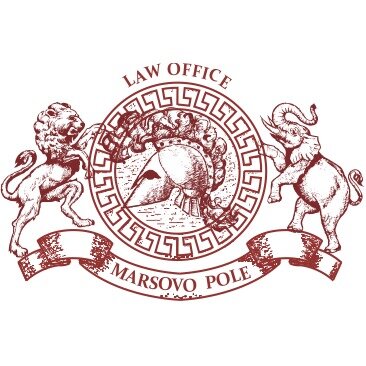
Best Child Custody Lawyers in St Petersburg
Share your needs with us, get contacted by law firms.
Free. Takes 2 min.
List of the best lawyers in St Petersburg, Russia


Petersburg Legal Center LLC

Advocate FREMM

Bespalov, Stogov and Partners

EPAM Law Firm

Khrenov and Partners
About Child Custody Law in St Petersburg, Russia
Child custody law in St Petersburg, Russia, is governed by the principles established in the Family Code of the Russian Federation. This law sets the framework for deciding matters related to the upbringing and residence of children following the dissolution of marriage or in the case of unwed parents. The child's interests are paramount in any custody decision, with the aim of ensuring their well-being and maintaining relationships with both parents. Joint custody is recognized, but the court may award sole custody if it is in the child's best interest. Decisions regarding custody are typically made by the local city courts in St Petersburg, with the possibility of appeal to higher courts.
Why You May Need a Lawyer
Legal assistance in child custody matters is crucial in situations where parents are unable to reach an agreement regarding the upbringing and living arrangements of their children. A lawyer can help in various scenarios, such as when one parent is contemplating moving abroad with the child, if there are allegations of abuse or neglect, or when one parent disagrees with the custodial terms proposed by the other. Additionally, matters of international abduction under The Hague Convention, or disputes regarding financial support, are complex areas where legal help is often necessary. A lawyer can navigate the court procedures and ensure your rights, and more importantly, the rights of the child, are protected throughout the legal process.
Local Laws Overview
The key aspects of local laws in St Petersburg that are particularly relevant to child custody include:
- Best Interests of the Child: All decisions made by the court are based on what is considered the best interests of the child, including their need for stability, education, and emotional development.
- Parental Rights: Both parents have equal rights in relation to their child, independent of their marital status or gender.
- Parenting Plan: Parents are encouraged to agree on a parenting plan that outlines the division of time and responsibilities. If parents cannot agree, the court will intervene.
- Child's Opinion: Depending on the age and maturity of the child, their opinion may be considered by the court in making custody decisions.
Frequently Asked Questions
What factors do courts in St Petersburg consider when deciding custody?
Courts consider the child's best interests, including their emotional, educational, social, and physical needs, the child's relationship with each parent, and each parent's ability to provide for the child. The child's own wishes may also be considered if they are of sufficient age and maturity.
Can a custody agreement be modified?
Yes, custody agreements can be modified. Changes in circumstances, such as a parent's relocation, a change in employment, or concerns over the child's welfare, may necessitate revisions to existing arrangements. Both parents must agree to the modifications or the court must approve the changes if parents cannot agree.
At what age can a child decide which parent to live with?
While there is no specific age at which a child can decide which parent to live with, the opinion of the child from the age of 10 may be given considerable weight by the court in its decision, depending on the child's maturity.
How does joint custody work in St Petersburg?
Joint custody in St Petersburg works by both parents sharing responsibility for the upbringing and decision-making regarding the child. However, this does not necessarily mean the child's time is divided equally between parents. The specifics of the custody arrangement are determined by the court or agreed upon by the parents.
What happens if a parent violates a custody order?
If a custody order is violated, the aggrieved parent may file a petition in court to enforce the order. The court may impose various measures, such as fines or changing custody arrangements, to address the violation.
Is it possible to relocate with a child during an ongoing custody dispute?
Relocating with a child during an ongoing custody dispute without the other parent's consent or court approval is not advised and can be deemed as parental abduction, potentially impacting the custody decision.
How does child custody work for unmarried parents?
For unmarried parents, child custody works similarly to divorcing couples. Both parents have equal rights and responsibilities towards the child, and if they can't agree on custody, the court will decide based on the best interests of the child.
Can grandparents or other relatives seek custody of a child?
Yes, in certain circumstances, such as the absence, death, or incapacity of the parents, grandparents or other relatives can seek custody. The court will consider the child's best interests when evaluating such petitions.
How does the court handle cases involving domestic abuse?
In cases involving domestic abuse, the safety and well-being of the child and the abused parent are of utmost concern. The court may limit or deny custody or visitation rights to the abusive parent.
What resources are available to help understand financial obligations like child support in custody cases?
Financial obligations such as child support are typically determined by the court based on the parents' income and the needs of the child. Legal advisors or family law specialists can help understand these obligations.
Additional Resources
Individuals seeking legal advice on child custody in St Petersburg, Russia, can turn to the following resources:
- The City Court of St Petersburg for information on the legal process and relevant court forms.
- Local legal aid organizations that provide free or low-cost advice to individuals in custody disputes.
- Family law attorneys who specialize in child custody and can provide personalized legal assistance.
- Child welfare agencies that can offer guidance and support services.
Next Steps
If you need legal assistance with child custody in St Petersburg, your next steps should be:
- Gather any relevant documentation and information regarding your custody situation.
- Consult with a reputable family law attorney who specializes in child custody to discuss your case and possible outcomes.
- Contact local resources, such as the City Court of St Petersburg or legal aid organizations, for additional information and support.
- Consider mediation services to resolve disputes amicably before opting for court intervention.
The information provided on this page is intended for informational purposes only and should not be construed as legal advice. While we strive to present accurate and up-to-date information, we cannot guarantee the accuracy, completeness, or currentness of the content. Laws and regulations can change frequently, and interpretations of the law can vary. Therefore, you should consult with qualified legal professionals for specific advice tailored to your situation. We disclaim all liability for actions you take or fail to take based on any content on this page. If you find any information to be incorrect or outdated, please contact us, and we will make efforts to rectify it.


